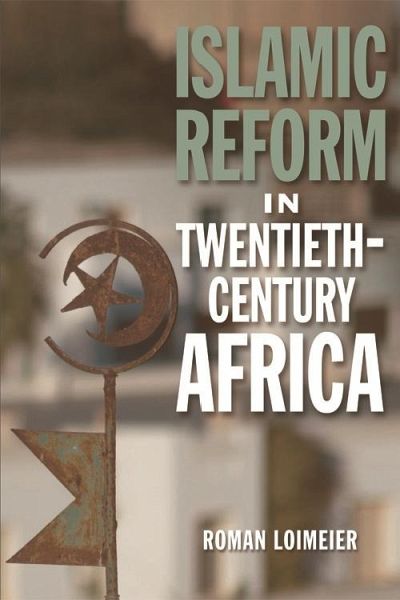
Islamic Reform in Twentieth-Century Africa (eBook, PDF)
Versandkostenfrei!
Sofort per Download lieferbar
0,00 €
inkl. MwSt.
Weitere Ausgaben:

PAYBACK Punkte
0 °P sammeln!
The first comprehensive analysis of Muslim movements of reform in modern sub-Saharan AfricaBased on twelve case studies (Senegal, Mali, Nigeria, Niger, Chad, Sudan, Ethiopia, Somalia, Kenya, Tanzania, Zanzibar and the Comoros), this book looks at patterns and peculiarities of different traditions of Islamic reform. Considering both Sufi- and Salafi-oriented movements in their respective historical contexts, it stresses the importance of the local context to explain the different trajectories of development.The book studies the social, religious and political impact of these reform movements in...
The first comprehensive analysis of Muslim movements of reform in modern sub-Saharan Africa
Based on twelve case studies (Senegal, Mali, Nigeria, Niger, Chad, Sudan, Ethiopia, Somalia, Kenya, Tanzania, Zanzibar and the Comoros), this book looks at patterns and peculiarities of different traditions of Islamic reform. Considering both Sufi- and Salafi-oriented movements in their respective historical contexts, it stresses the importance of the local context to explain the different trajectories of development.
The book studies the social, religious and political impact of these reform movements in both historical and contemporary times and asks why some have become successful as popular mass movements, while others failed to attract substantial audiences. It also considers jihad-minded movements in contemporary Mali, northern Nigeria and Somalia and looks at modes of transnational entanglement of movements of reform. Against the background of a general inquiry into what constitutes 'reform', the text responds to the question of what 'reform' actually means for Muslims in contemporary Africa.
Key features
- Biographies of reformist scholars complement the text
- Case studies are placed in the context of the dynamics of 'reform' in the larger world of Islam
- Addresses the importance of trans-national entanglements and their formative power
- Focuses on the dynamics of social and religious development, the political dynamics of Islamic 'reform' and issues of youth, generational change and gender
Dieser Download kann aus rechtlichen Gründen nur mit Rechnungsadresse in A, B, BG, CY, CZ, D, DK, EW, E, FIN, F, GR, HR, H, IRL, I, LT, L, LR, M, NL, PL, P, R, S, SLO, SK ausgeliefert werden.













